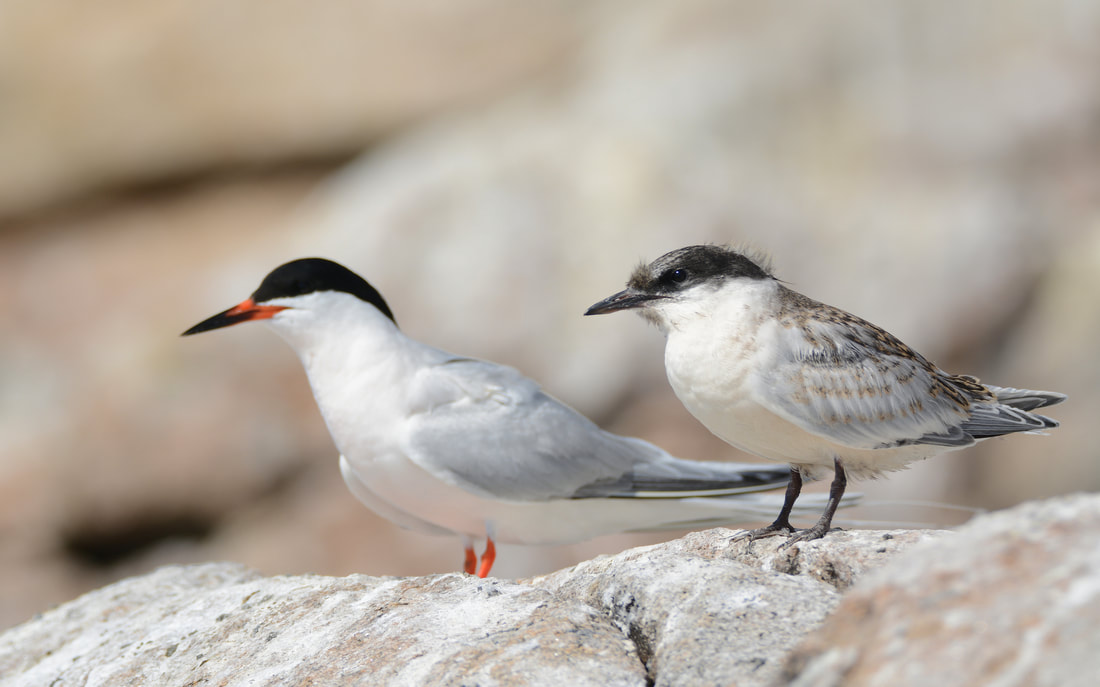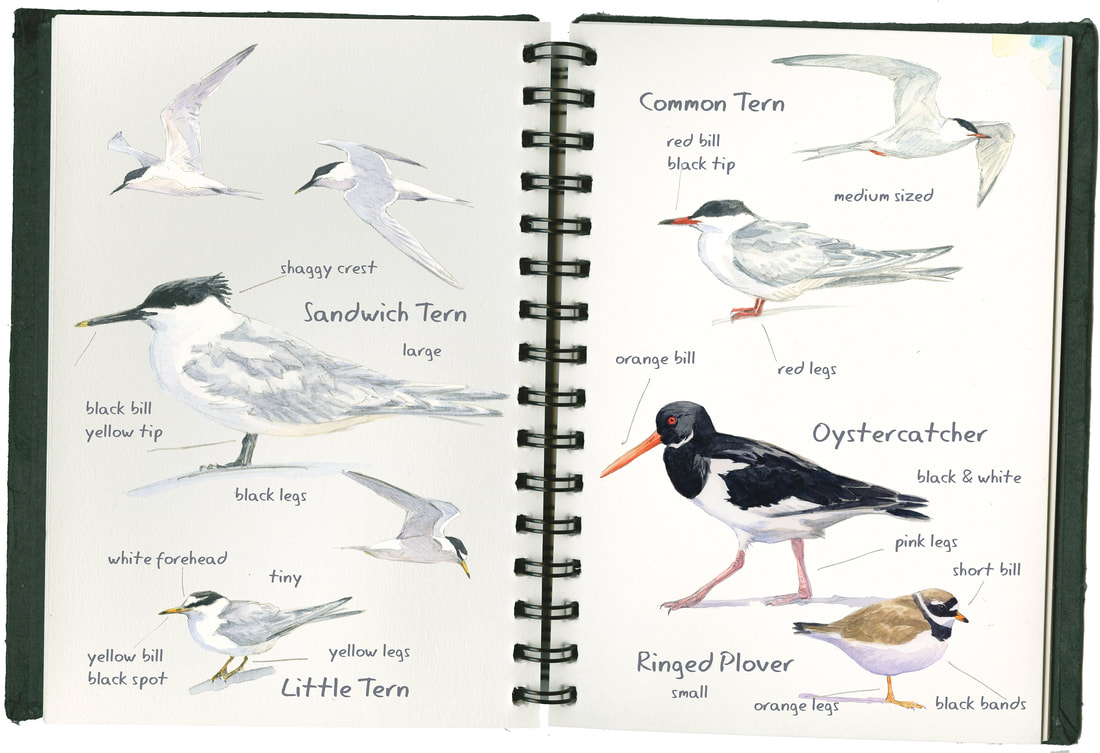|
In a year when everything can feel a little bleak, we want to celebrate the hard work and partnership approach to breeding bird conservation, this summer in the Solent. Hampshire County Council, Bird Aware Solent and the RSPB’s Roseate Tern LIFE Recovery Project have been working to secure safe nesting areas for breeding terns and other coastal wetland species such as avocet, ringed plover and black-headed gulls. The nesting terns on the Solent face many challenges:
The roseate tern is the rarest breeding seabird in the UK with only 131 pairs recorded in 2020. While the core colonies of this species in Ireland and the UK are growing, it’s essential to think about the long-term future of the species and helping expand their range. This is where the Western Solent is important. Improving and boosting the survival of the common tern colonies may mean the roseate terns will be more inclined to recolonise the areas in the future. As part of these efforts, the project worked to restore the degraded tern habitats and work to minimise predation. This year, the partnership welcomed Bird Aware Solent rangers who carried out essential monitoring of the terns and public engagement activities. They have helped us develop our understanding of the issues faced by these migrant species. Encouragingly, they have also uncovered some signs of resilience in the face of issues such as sea level rise and disturbance. Mark, Western Solent Tern Ranger for the Roseate Tern LIFE Recovery Projects said “It is satisfying to see that the hard work put in by the Hampshire Countryside Team, volunteers and Roseate Tern rangers is paying off. This year, 6 little terns and 25 common tern chicks have fledged on the Normandy Lagoon at Lymington Nature Reserve - compared to only 3 little terns, and no common terns last year. We have also had a bumper year for Avocets with over 30 pairs and at least 15 chicks seen and other nesting birds such as Ringed Plover, Little Ringed Plover, Redshank, Oystercatcher, Lapwing, Shelduck and Canada Geese. The partnership aims to help conserve these protected shorelines and the birds who travel to them from different parts of the world. We believe it is hugely important that we have a joint approach to conservation as many of the issues affecting summer migrants affect our winter migrants too. Bird Aware Solent Ranger, Lizzie, developed her love for terns at university. She noted “It’s been wonderful to be involved in the Roseate Tern LIFE project monitoring. Some of the surveys I’ve been involved in this summer have included watching a colony that I studied for my dissertation, which was very nostalgic. Although my role at Bird Aware means I now predominantly work with winter migrants, it’s been great to get stuck in with some breeding bird work again”. David, RSPB Warden said: “To say we faced uncertainty going into the 2020 nesting season is somewhat of an understatement. Every summer since 2017, a dedicated team of RSPB staff and volunteers have installed 2 floating tern rafts in the lagoon at the West Hayling Local Nature Reserve. Terns are facing many challenges and the amount of suitable nesting habitat for them is very limited. The rafts give a vital lifeline to the population in the area. In a normal nesting season, the rafts would usually be launched by the end of April in preparation for the first wave of nesting terns but there was a real concern that the rafts would not be installed this year. However, thanks to some careful planning, a small team managed to successfully install the larger of the two rafts on the 20th of May and within minutes, the first prospecting terns landed on the raft. The smaller raft was installed the following week with similar effect. Over the course of the season, these rafts would go on to be home to over 40 pairs of nesting common terns as well as over 20 pairs of black headed gulls, many of which successfully raised chicks. Given the precarious start to the season, to see so many chicks hatch and fledge from these rafts was a real boost to morale and everyone involved in this collaborate effort can be proud in giving a helping hand to the next generation of common terns in the Solent.”
Successful breeding seasons are vital for future populations. Sharing our shores with these birds is both a pleasure and a responsibility. Please help migrating birds throughout the year by following our coastal code.
0 Comments
|
More Blogs to Read
AuthorThis blog is maintained by various people from the project team. Archives
August 2020
Categories
All
|
Roseate Tern LIFE Project is supported by the LIFE Programme of the European Union
LIFE14 NAT/UK/000394 ROSEATE TERN
LIFE14 NAT/UK/000394 ROSEATE TERN





 RSS Feed
RSS Feed